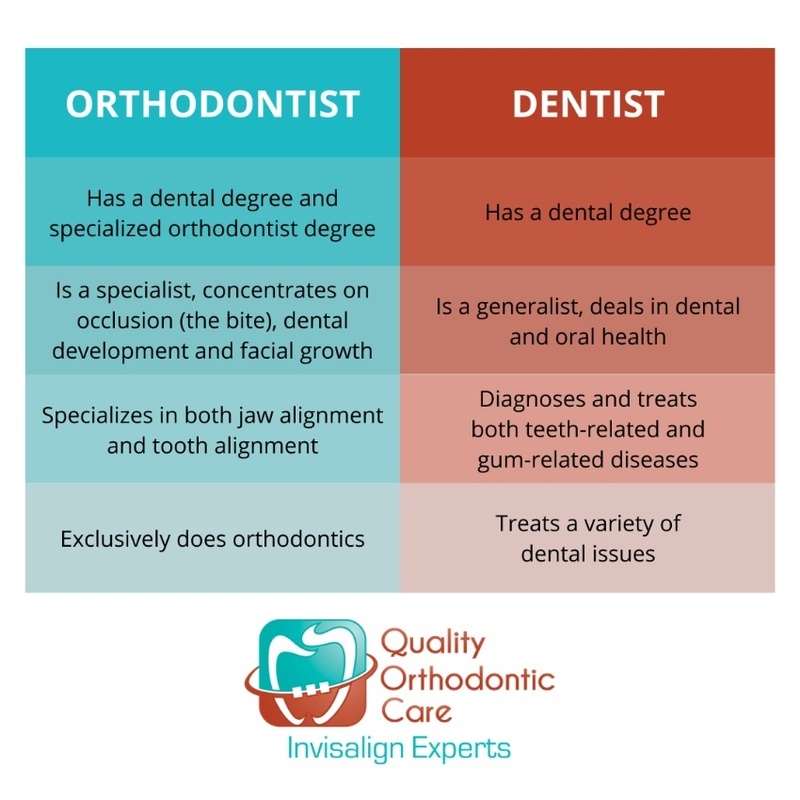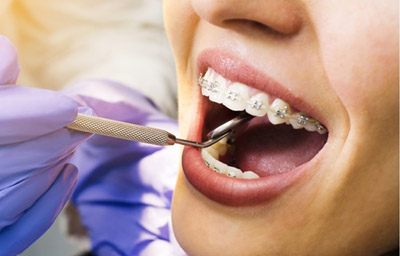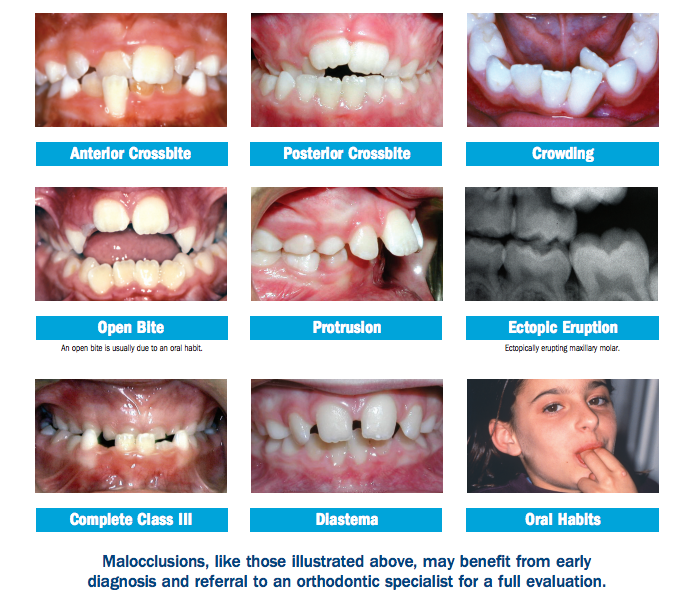What Does Causey Orthodontics Mean?
Table of ContentsNot known Facts About Causey OrthodonticsIndicators on Causey Orthodontics You Should KnowTop Guidelines Of Causey OrthodonticsSome Known Facts About Causey Orthodontics.Some Known Details About Causey Orthodontics Unknown Facts About Causey OrthodonticsWhat Does Causey Orthodontics Mean?
What is the distinction between a dental expert and an orthodontist? To respond to an inquiry that is commonly asked, both dental practitioners and orthodontists aid people obtain far better dental health and wellness, albeit in various methods. It aids to keep in mind that dentistry is an instead broad scientific research with different medical specializations. All dental practitioners, consisting of orthodontists, deal with the teeth, gum tissues, jaw and nerves.
You can assume of both medical professionals that treat gum tissue and teeth troubles. The primary distinction is that ending up being an orthodontist requires a specific specialty in dealing with the misalignment of the teeth and jaw.
Getting My Causey Orthodontics To Work
An orthodontist is a dental professional that has gone through training to specialize in the diagnosis, avoidance and therapy of irregularities in the jaw and teeth. They can also determine prospective troubles in teeth positioning that might develop when problems are left without treatment (best orthodontist near me).
This consists of all the needed education and learning to become a basic dental practitioner. According to the American Pupil Dental Association (ASDA), it means you will certainly require to have either a Physician of Medication in Dentistry (DMD) or a Doctor of Oral Surgery (DDS). Simply put, orthodontists require to finish dental college and after that acquire an orthodontics specialized education.
Some orthodontists additionally obtain their masters in craniofacial biology. best orthodontist (https://replit.com/@causeyorthodga). Numerous oral colleges offer minimal orthopedic training and direction, which is why general dental experts require to visit orthodontic school after graduation. Orthodontic residency programs offer intensive training for this sort of dental specialization. These programs concentrate on two details areas or techniques: Dentofacial Orthopedics: This research study concentrates on guiding teeth and jaw development.
The Facts About Causey Orthodontics Uncovered

 These consist of device such as braces, retainers and Invisalign. So, what does an orthodontist do, and what do they focus on? The general objective of an orthodontist is to enhance an individual's bite. Not everyone is born with straight teeth, and an orthodontist will make certain that clients get uniformly spaced straight teeth.
These consist of device such as braces, retainers and Invisalign. So, what does an orthodontist do, and what do they focus on? The general objective of an orthodontist is to enhance an individual's bite. Not everyone is born with straight teeth, and an orthodontist will make certain that clients get uniformly spaced straight teeth.
Some Known Details About Causey Orthodontics
The American Association of Orthodontists suggests your initial check up by age 7. You'll need to see your orthodontist if you have an imbalance in your teeth, additionally known as malocclusion. If you discover irregular bite patterns, a slightly twisted jaw, or when your teeth are jammed, you will likely require orthodontic treatment.
In addition, we provide adjustable therapy schedules, flexible payment alternatives and a fun, pleasurable experience.
An orthodontist is a dentist trained to identify, stop, and treat teeth and jaw irregularities. They remedy existing problems and are educated to identify problems that may develop in the future. Orthodontists function with people of any ages, from children to grownups. People often link an excellent smile with good health.
6 Simple Techniques For Causey Orthodontics
Malocclusion, or misaligned teeth, can cause oral problems, including dental cavity, gum disease, and challenging or agonizing chewing. But not everybody is born with straight teeth. If you have a poor bite or huge spaces in between your teeth, you may intend to seek advice from a dentist focusing on orthodontic treatment.
(Image Credit Rating: DigitalVision/Getty Images) Orthodontists use repaired and detachable oral devices, like dental braces, retainers, and bands, to change the position of teeth in your mouth. Orthodontic treatment is for dental abnormalities, including: Uneven teethBite troubles, like an overbite or an underbiteCrowded teeth or teeth that are too far apartJaw misalignmentThe goal of orthodontic therapy is to enhance your bite.
5 Easy Facts About Causey Orthodontics Described

All orthodontists are dental practitioners, however not all dental practitioners are orthodontists. Orthodontic residency programs provide extensive, concentrated direction for dental specialists. They concentrate on two areas: How to properly and securely relocate teeth How to properly direct development in the teeth, jaw, and faceOnce an orthodontist has actually completed training, they have the alternative to come to be board certified.
Malocclusion leads to tooth overcrowding, a misshapen jaw, or uneven bite patterns. Malocclusion is generally treated with: Your orthodontist connects steel, ceramic, or plastic square bonds to your teeth.
The 9-Minute Rule for Causey Orthodontics
If you have just small malocclusion, you may have the ability to make use of clear braces, called aligners, rather than standard braces. Some individuals need a headgear to help relocate teeth right into line with pressure from outside the mouth. After braces or aligners, you'll need to wear a retainer. A retainer is a custom gadget that keeps your teeth in position.